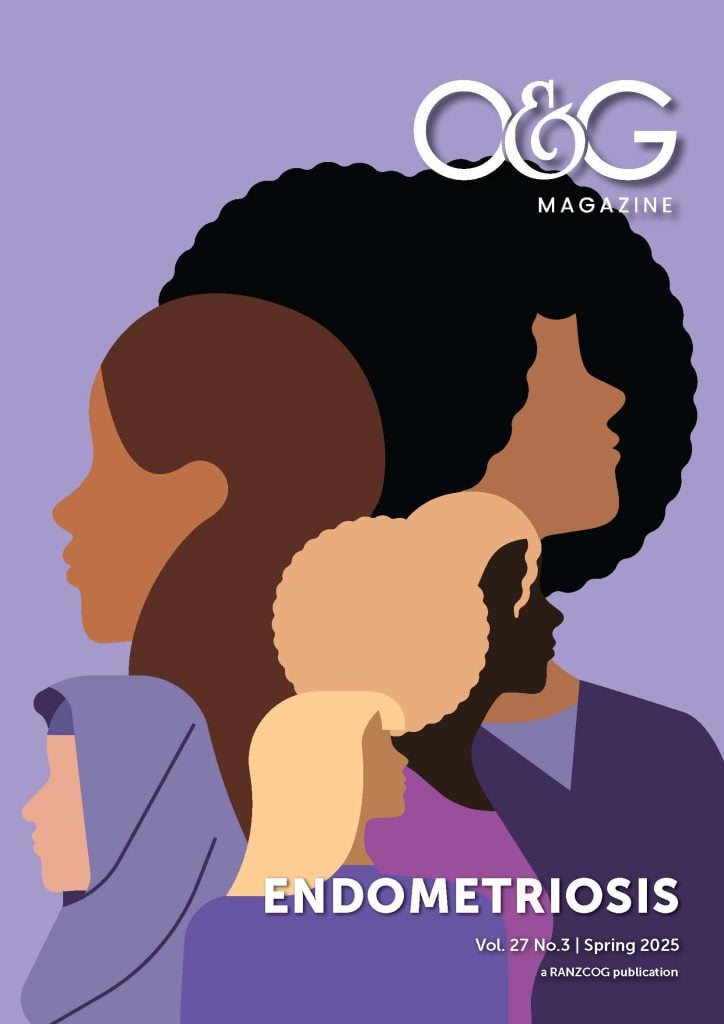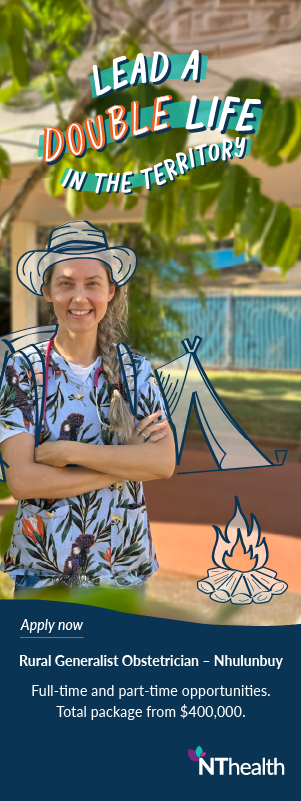At this year’s RANZCOG Aotearoa Annual Scientific Meeting, the RANZCOG Māori Women’s Health Award was proudly presented to Te Aukume a Hine te Iwaiwa, a powerful collective working to transform perinatal health outcomes for wāhine Māori and their whānau. This award recognises individuals or research groups that have made a significant contribution to Māori women’s health.
But their story did not begin in a boardroom. It began in the mauri, the life force of their people.
Following a national ON TRACK Network survey, it was revealed that the top 20 perinatal research priorities identified were all specific to Māori. This finding became a catalyst for change, facilitated by Diane Wihongi, challenging attendees to pause, sit in the discomfort of silence, and truly listen to the solutions already being offered by Māori.
From that second, momentum grew. Dr Felicity Ware, Dr Wendy Burgess, Professor Katie Groom and others rallied around the vision and secured a Health Research Council (HRC) Research Activation Grant. This grant laid the foundation for a new collective: Te Aukume a Hine te Iwaiwa. The name honours Hine te Iwaiwa, the atua (God) of childbirth, weaving, tides, and moonlight, symbolising the natural forces that pull people together, in rhythm and purpose.
The collective draws Māori researchers from across Aotearoa into a shared kaupapa (purpose): to reclaim and lead the space of perinatal research for and by Māori.
During the COVID-19 lockdown, the collective found innovative ways to connect. Online whakawhanaungatanga (relationship building), led by Dr Ware and Hāpai Selby-Law, created space for deep, meaningful connection. In parallel, Stephanie Shankar and Kaniwa Kupenga-Tamarama conducted a scoping review, identifying Māori-led research publications in perinatal health. The findings confirmed what many already knew, Māori knowledge and research in this space is rich, robust, and ready to lead.
A defining moment for the rōpū (group) came with their kanohi ki te kanohi wānanga (face to face meeting) at Papakura Marae, held in the narrow window between Cyclones Hale and Gabrielle. With pēpi (babies) in arms and kaumātua (elders/leaders) like Papa Tuta Haereroa embracing the gathering, the marae became the womb of the kaupapa. It was an intergenerational space where Māori research across disciplines, clinical, non-clinical, and rongoā Māori (Māori medicine/health practices), was shared within a whare (house/building) that breathes with the community it serves.
It was at this wānanga (meeting) that Māori perinatal research priorities were set. These priorities will not only guide the mahi (work) of the collective but also help shape the future of Māori-led clinical trials and health strategies.
The rōpū’s scoping work has now been captured in a landmark report: Mātātuhi Whakatere a Hine te Iwaiwa – The Navigation Charts of Hine te Iwaiwa. This taonga (treasure), carried forward by Hāpai te Hauora (Māori Public Health Organisation), provides a vital resource, a roadmap of Māori-authored research that will guide both current and future researchers in the perinatal space.
Their efforts stand as a reminder of what is possible when kaupapa Māori is centred, resourced, and trusted to lead.
In accepting the award, the rōpū extended acknowledgements to the Massey University of New Zealand for its ongoing support, to He Hono Wāhine for the nomination, and to RANZCOG for making space for kaupapa Māori within the scientific forum. But most importantly, they dedicated the award to wāhine Māori, whānau, tamariki (children), kaimahi (workers), and researchers across the motu (country), those who have walked alongside them and those yet to come.
“Mā te huruhuru, ka rere te manu – with the right feathers, our bird will soar.”
Te Aukume a Hine te Iwaiwa is more than a research group. They are a reclamation, a reconnection, and a reminder that the answers have always been within us.
References
- Groom KM, Mossinger C, Lawrence J, McKinlay CJD, Crowther CA, Simpson NAB, et al. The priorities for future clinical trials and large cohort studies addressing health and healthcare for mothers and babies in Aotearoa New Zealand. N Z Med J. 2022 Apr 14;135(1553):53–67. Web: https://nzmj.org.nz/media/pages/journal/vol-135-no-1553/the-priorities-for-future-clinical-trials-and-large-cohort-studies-addressing-health-and-healthcare-for-mothers-and-babies-in-ao/e1fc232242-1696474014/the-priorities-for-future-clinical-trials-and-large-cohort-studies-addressing-health-and-healthcare-for-mothers-and-babies-in-ao.pdf






Leave a Reply